Mati Tamwoy death in custody inquest hears policies failed ‘institutionalised’ terminally ill 66-year-old while in hospital
The Darwin prison manager has candidly told the Territory coroner, ‘I believe we’ve lost sight of the humanity aspect when we’re dealing with prisoners in most circumstances’.
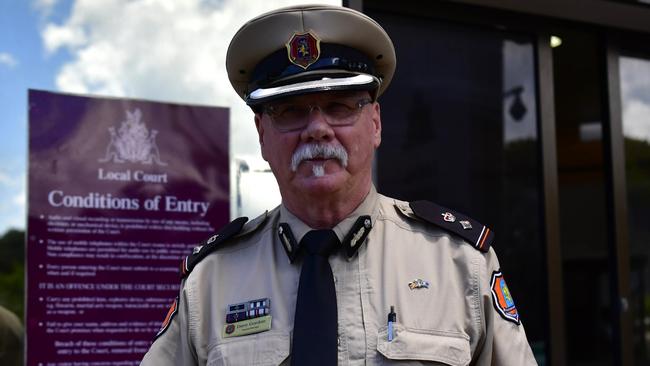
News
Don't miss out on the headlines from News. Followed categories will be added to My News.
Prisoners have been robbed of their dignity and guards of their freedom to act compassionately under outdated Corrections policy guidelines, the Territory coroner has heard.
Coroner Elisabeth Armitage said it was “disturbing and upsetting” 66-year-old remand prisoner Mati Tamoy was repeatedly shackled to his Royal Darwin Hospital bed, despite both being a terminal patient and a low-security prisoner.
During the final day of his death in custody inquest, Darwin Correctional Precinct general manager David Gordon told Ms Armitage: “I believe we’ve lost sight of the humanity aspect when we’re dealing with prisoners in most circumstances”.
“Compassion is sadly lacking because of some of our prescriptive procedures,” he said.
Mr Tamwoy was diagnosed with an aggressive blood cancer and died in custody on November 17, 2023, while on remand waiting for his Supreme Court trial over an alleged robbery, aggravated assault and for breaching a domestic violence order.
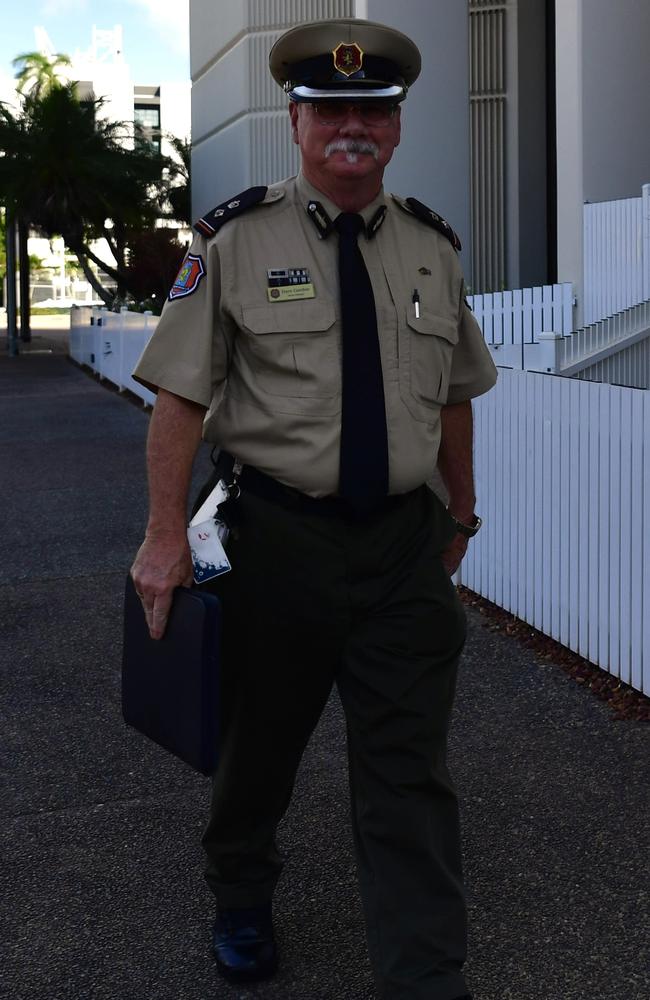
During his 46 hospital visits, Mr Tamwoy was only ever out of his shackles or handcuffs when he was in the bathroom, or when he was taken to the intensive care unit and palliative care ward.
Despite Corrections workers having discretion over whether to use restraints for low-security prisoners, First-class corrections officer Mary Sun told Ms Armitage they followed the standard operating procedure “to cover our arse”.
One guard told the inquest Mr Tamwoy was wearing bandages around his leg to stop the pain of the restraints.
Mr Gordon said given Mr Tamwoy’s compliance, good behaviour, strong rapport with guards and ill health there should have been no security concerns requiring him to be shackled.
“If we had followed the directive, there would have been no restraints,” he said.
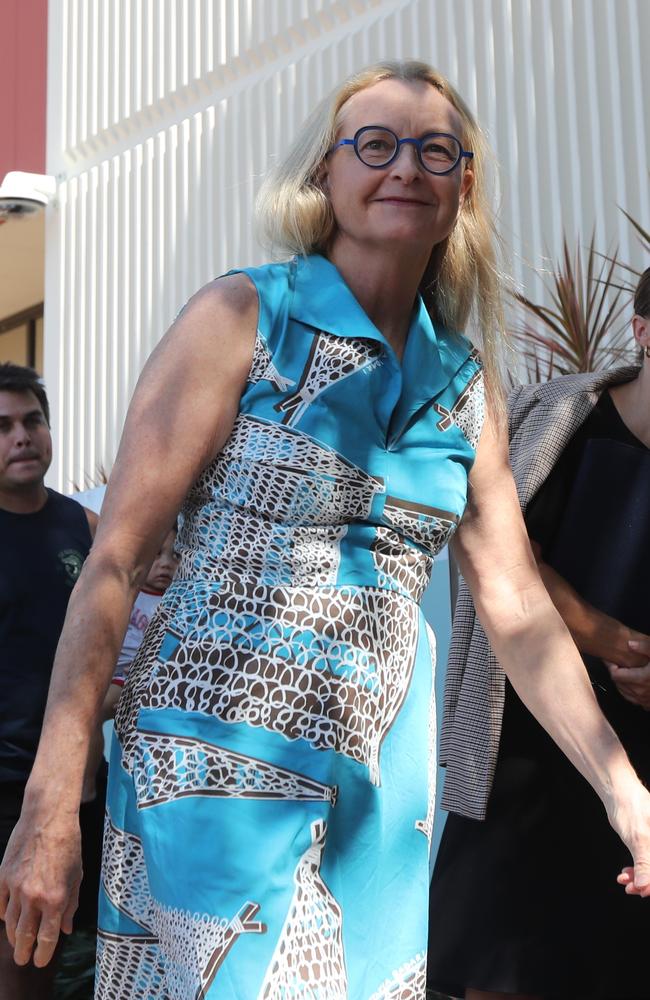
Mr Gordon said it was clear guards were not aware they could use their own judgement when restraining low-security prisoner-patients, however the blame was on the outdated policy guidelines, not staff.
“We quash that compassion by then going to the SOP (standard operating procedure) to say prisoners must be secured to the bed by a leg restraint,” he said.
“We’re removing that discretion from compassionate people.
“We’re at fault there.”
Mr Gordon said he had asked the Corrections Commissioner and his deputy to put “prisoner dignity” within prison’s policy guidelines and bring them in line with “contemporary best practice”.
He said respecting prisoners humanity was ultimately critical to rebuilding their self-esteem, getting them back on track and engaging them in rehabilitation.
Ms Armitage suggested since Mr Tamwoy had spent 15 of the past 33 years in a cell, he had become “institutionalised”, meaning he struggled to navigate a life of freedom.
The inquest heard at no point in his 661 days on remand did Mr Tamwoy apply for bail — despite 36 professional visits and his co-accused being released after six months.
“People say ‘prison is easy, they get three meals a day, and a roof over their head’ — I challenge them to do a week. It’s tough.” Mr Gordon said.
“I spoke to Mati a couple of times....it’s sad to say but he was happy in jail.”
Mr Gordon said like Mr Tamwoy, up to 45 per cent of his prisoners were on remand — meaning they had restricted access to programs — and the time spent languishing on remand was rising to an average of 70 days.
“But at the top end of that is around 314 prisoners who have spent an average of 109 days on remand, and then they go to court, the charges are either withdrawn, dismissed or released time served,” he said.
Despite multiple cycles through the prison, Mr Tamwoy’s emergency contact information was not updated for seven years, and one of the final requests was for Corrections to not contact his next of kin after he died.
Contrary to the prison’s death in custody directives, Corrections also failed to contact an Aboriginal Legal Service following Mr Tamwoy’s death.
The coronial closed on Wednesday, and Ms Armitage will release her findings at a later date.
Mati Tamwoy death in custody inquest hears ‘institutionalised’ 66-year-old spent 661 days on remand
A man dying of cancer spent the final 600 days of his life with no visits from family, carted back and forth from his Darwin prison cell and repeatedly shackled to a hospital bed.
Remand prisoner Mati Tamwoy was waiting for his Supreme Court trial over an alleged robbery, aggravated assault and breaching a domestic violence order when he died in Darwin Royal Hospital.
In the opening day of a death in custody inquest, Coroner Elisabeth Armitage questioned why Mr Tamwoy spent most of his dying days shackled to a hospital bed.
The Queensland-born Indigenous man was a prisoner at Darwin Correctional Centre when he was diagnosed with Myeloma, an aggressive blood cancer, in September 2023, and was given months to live.
Following a lifetime of cycling between homelessness, violence and imprisonment Mr Tamwoy died aged 66, on November 17, 2023.
Ms Armitage heard Mr Tamwoy had spent 661 days waiting on remand over the alleged aggravated robbery, despite his co-accused only being sentenced to six months in prison.
While he had 36 professional visits from lawyers, Mr Tamwoy never pushed for a bail application.
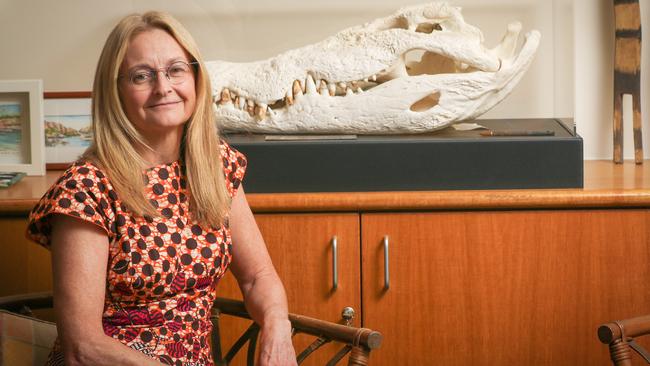
Counsel for the coroner Chrissy McConnell said there was no record of Mr Tamwoy ever getting a personal visit or accessing the prisoner telephone system to contact loved ones — even telling Corrections not to contact his next of kin after his death.
Prison support officer Sandy Collenso told the coroner it was “very possible” Mr Tamwoy was ‘institutionalised’ after spending 15 years — 5718 days of his life — in a cell.
Ms Collenso said everyone knew “cheeky old Mati”, but he struggled whenever he was released.
“I’ve seen many, many prisoners on the inside, they’re beautiful souls, but once they get out the community lets him down and they go AWOL,” she said.
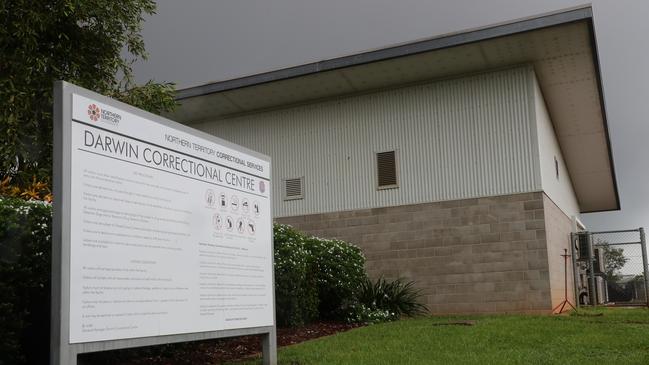
Ms McConnel said “little to nothing” was known about Mr Tamwoy’s early life in North Queensland, before the paper trail of arrests, court appearances and prison stints began.
However court documents obtained by this publication revealed after leaving school at 16, the Cape York man spent six years with the Navy receiving an honourable discharge at the rank of Leading Seaman in 1979.
He then worked consistently across fisheries, cattle stations and construction sites, even becoming the supervisor of the Community Development Employment program at Amata, 40km south of the NT border.
But a dangerous combination of alcohol addiction and anger took over his life, and by 2005 Mr Tamwoy was long grassing in Darwin.
It was the women in his life that bore the brunt of his rage, and he was charged with multiple domestic violence related assaults including the death of his de facto wife in 2007.
The couple was camping at the Casuarina Coastal Reserve when, without warning, Mr Tamwoy ripped off her clothes and threw them in the fire before back-handing her across the face.
“Do you want to burn too?,” he said as he dragged the small woman towards the fire.
Mr Tamwoy then threw her onto the ground, causing a fatal head injury.
But he did not realise the severity of the assault and fell asleep next to her bloody, but still breathing body — only realising the next morning that she had died.
Mr Tamwoy pleaded guilty to manslaughter and was sentenced to seven years in prison.
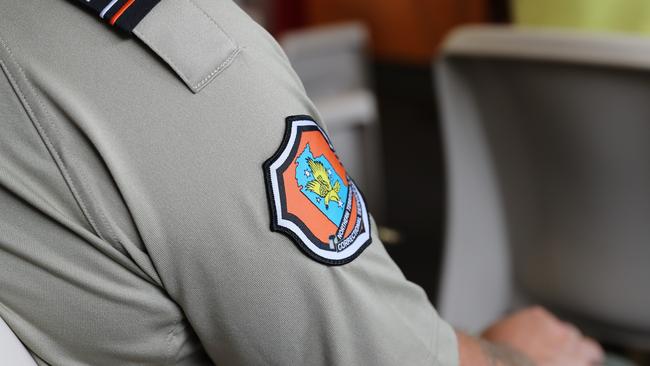
At the time of his death, Mr Tamwoy was waiting for a Supreme Court trial over an alleged robbery, aggravated assault and breaching a domestic violence order.
Ms Armitage heard while Mr Tamwoy was in hospital he was almost always in handcuffs or in leg shackles under watch of Corrections guards on 12-hour hospital shifts.
She questioned six prison guards why he spent hours restrained to his bed, despite being critically unwell.
“I have cancer, I’m sick, you can’t shackle me,” Mr Tamwoy told a guard.
“I have been around longer than you have, you should know the rules.”
Ms Armitage said despite the security directives stating guards could use their discretion for low-security prisoner-patients there were only a handful of cases where the guards ever took off a restraint device.
Some guards said only if they were in a coma or there was a direct request from a doctor or nurse, would they contact their supervisor for approval to release handcuffs or shackles.
While some guards said on reflection they would have removed Mr Tamwoy’s shackles, Robert Hawkins said his terminal status may have been a motive to flee.
“The opportunity for Mati for one last night, to get some Maccas or meet up with one of his many girlfriends, that might have been too strong for him,” Mr Hawkins said.
The inquest continues on Wednesday.
More Coverage
Originally published as Mati Tamwoy death in custody inquest hears policies failed ‘institutionalised’ terminally ill 66-year-old while in hospital





